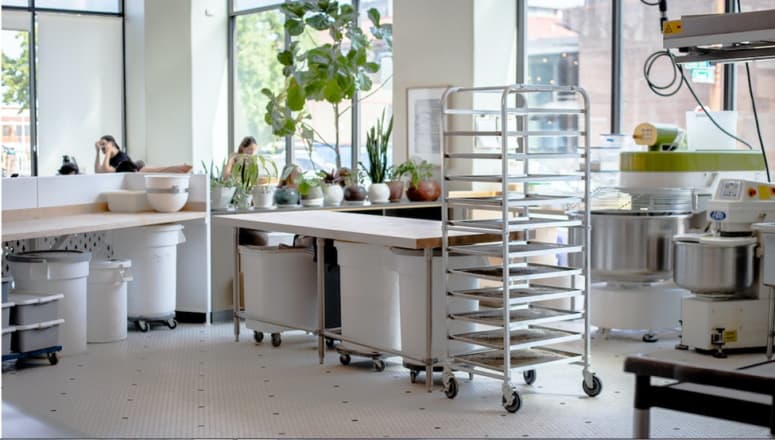Running a successful commercial kitchen requires more than just the right ingredients; you need the proper equipment to create amazing food reliably and efficiently. From cooking and refrigeration to cleaning and sanitation, the perfect commercial kitchen setup can make all the difference in streamlining your operations.
High-Quality Cooking Equipment
At the heart of any commercial kitchen is the cooking equipment. Investing in high-quality ranges, ovens, grills, fryers, and other cooking appliances can dramatically increase efficiency and ensure the consistent quality of your food. For example, a commercial toaster from Antunes will provide even toasting and fast, reliable performance that is crucial for busy operations.
It’s essential to consider both the type and capacity of the equipment you choose and how it will fit into your kitchen’s layout. For instance, you may require multiple ovens to efficiently handle multiple processes occurring simultaneously, or a combination oven might be necessary to conserve space. Additionally, steamers, broilers, griddles, and other specialized equipment can help offer diverse menu options and cater to certain preparation methods.
Maintaining your cooking equipment is critical for ensuring your kitchen functions at peak efficiency. Regular cleaning and servicing will help prevent breakdowns, avoiding costly interruptions to your restaurant’s operation. In addition to keeping your cooking appliances in top condition, replacing out-of-date or underperforming equipment can result in significant energy savings and increased productivity.
Efficient Refrigeration and Storage
Next to the cooking equipment, the refrigeration and storage solutions in your commercial kitchen are equally important. Proper refrigeration ensures food safety, preserves freshness, and ultimately impacts the taste of your dishes. Choosing an appropriate refrigerator, freezer, and preparation cooler for your operation is important to keep food cold and easily accessible while maximizing the limited space in your kitchen.
Similarly, efficient dry storage facilities will help keep your ingredients organized and secure while reducing the risk of cross-contamination. This includes shelving for canned and boxed goods, proper storage for bulk ingredients like flour and rice, and designated areas for storing cleaning supplies away from food items.
Combined with an effective inventory system, well-organized and maintained storage facilities help keep your operation running smoothly by minimizing food waste and ensuring that essential ingredients are always on hand. This benefits both your bottom line and the quality of your dishes.
Reliable Washing and Sanitation Stations
Maintaining a clean and sanitary kitchen environment is vital for the health of both your staff and your customers. From dishwashing equipment to food prep sinks, every aspect of your washing and sanitation system should be robust, efficient, and easy to use.
In addition to commercial-grade dishwashers, investing in a dedicated warewashing station with separate sinks for washing, rinsing, and sanitizing can make the cleaning process faster and more thorough. Additionally, floor drains, grease traps, and other essential sanitation features help prevent accidents, promote cleanliness, and comply with local health regulations.
Remember that sanitation applies to your staff, too — handwashing stations should be easily accessible and stocked with soap and paper towels. It’s essential to foster a culture of cleanliness and provide the necessary tools to ensure that your staff can maintain a safe, hygienic workspace.
Effective Ventilation and Fire Suppression Systems
A well-ventilated commercial kitchen not only provides a comfortable work environment for your staff but also helps ensure the equipment’s longevity and reduces the risk of fire hazards. Adequate ventilation removes excess heat, steam, and smoke generated by cooking processes, improving overall air quality and maintaining a safe temperature within the kitchen.
An efficient fire suppression system is necessary for protecting your staff and equipment in the event of a fire. High-quality and regularly inspected hood systems, fire extinguishers, and sprinkler systems will help mitigate the risk of extensive damage should an emergency occur.
Working closely with local fire and health departments to ensure your commercial kitchen complies with all safety regulations is crucial. Not only will it help prevent fines or shutdowns, but it will also create a safer, more efficient workspace for your staff.
Altogether, ensuring your commercial kitchen is equipped with high-quality cooking equipment, efficient refrigeration and storage systems, reliable washing and sanitation stations, and effective ventilation and fire suppression systems will provide the foundation for a well-functioning and successful operation.


